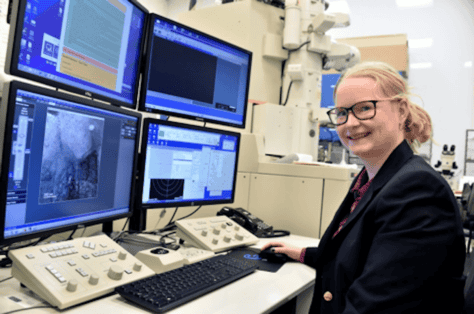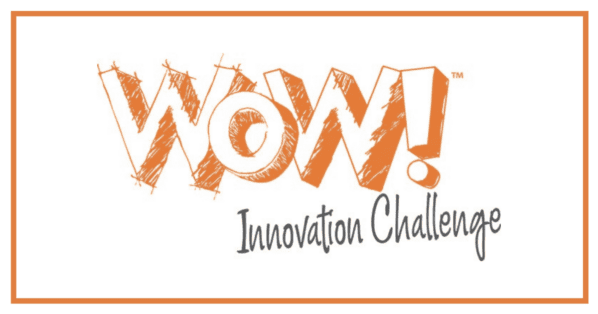We know that parent or guardian involvement in their child’s education is one of the most accurate predictors of academic achievement. When parents are engaged in their child’s learning, the student is likely to have improved grades and attendance, better social skills and behavior, and an increased interest in their own schooling. The involvement of adult supporters and role models (ie. parents, guardians, and educators) in STEM outreach is equally important to a child’s self confidence and performance while tackling the challenging subjects. Young girls can especially benefit from this engagement in STEM extracurricular activities. Girls begin to question their interest in STEM around the age of 10, and, by the age of 15, the average girl loses her interest in the subjects. Support from the adults surrounding her educational experiences is critical to changing these statistics. On average, having a STEM role model can result in a 12 percent increase in the likelihood that a young girl has an interest in STEM. As such, we believe it is important for outreach events to encourage active participation from parents and educators and aim to provide resources and programming for the adult supporters.
This month, we asked SWE members to provide advice on how to successfully engage parents, guardians, and educators in outreach events.
Tilka Persaud
Cornell University SWE, Treasurer (Former Outreach Coordinator)
 I think the best way for parents and educators to be engaged in outreach events is to actively design activities to incorporate them. For example, if an activity is a design competition to make the best boat out of given materials, have the adults be the “judges”. Instead of readily declaring a winner though, adults can instead tell the participants what they liked about what the participants built and how they can further improve their design. I think it’s important for parents and educators to show some level of affirmation and encouragement of what younger participants are doing, and this is one method of doing that. At the same time, I think it’s important to allow children the chance to tackle activities independently and to let them see for themselves how they would approach a problem. The best way to engage is to support rather than to control. This leads to a much more positive learning experience for the event participants.
I think the best way for parents and educators to be engaged in outreach events is to actively design activities to incorporate them. For example, if an activity is a design competition to make the best boat out of given materials, have the adults be the “judges”. Instead of readily declaring a winner though, adults can instead tell the participants what they liked about what the participants built and how they can further improve their design. I think it’s important for parents and educators to show some level of affirmation and encouragement of what younger participants are doing, and this is one method of doing that. At the same time, I think it’s important to allow children the chance to tackle activities independently and to let them see for themselves how they would approach a problem. The best way to engage is to support rather than to control. This leads to a much more positive learning experience for the event participants.
Nicole McCullough
Iowa State University SWE, Outreach VP
 The best way to get parents involved in outreach events is through their kids. We always make sure to have at least one activity that the kids can build individually and then take home. It’s gratifying to watch as their parents pick them up, and they proudly show off their creation they worked so hard on. Usually, they will also explain how they made it and even the science behind it. It gives the kids the ability to demonstrate what they learned throughout the day. This lets the parent have insight into what the event was and what their kid was able to do. I’ve even had parents come up to me and ask me how I came up with it and how we were able to do it. This creates a bridge between us as coordinators and their parents. Also, it gets the parents excited about STEM because they see how much fun their kid had.
The best way to get parents involved in outreach events is through their kids. We always make sure to have at least one activity that the kids can build individually and then take home. It’s gratifying to watch as their parents pick them up, and they proudly show off their creation they worked so hard on. Usually, they will also explain how they made it and even the science behind it. It gives the kids the ability to demonstrate what they learned throughout the day. This lets the parent have insight into what the event was and what their kid was able to do. I’ve even had parents come up to me and ask me how I came up with it and how we were able to do it. This creates a bridge between us as coordinators and their parents. Also, it gets the parents excited about STEM because they see how much fun their kid had.
Catherine Gurecky
SWE Outreach Committee Member
 In addition to engaging adults in the activities themselves, I think it can be helpful to plan programming specific to the parents and educators at the event. A great option for this is to have a SWENext “info session.” The event organizers can create a SWENext presentation and print out SWENext resources to give to the parents. Many resources can be found here, and SWENext also has helpful videos on YouTube. While the children are busy building their creations, the parents can learn about SWE and find answers about how to get involved in their community. Adult attendees also value Q&A sessions centered around the college or industry female engineering experience. These sessions are an opportunity to educate the adults on how they can continue STEM based learning at home or in the classroom.
In addition to engaging adults in the activities themselves, I think it can be helpful to plan programming specific to the parents and educators at the event. A great option for this is to have a SWENext “info session.” The event organizers can create a SWENext presentation and print out SWENext resources to give to the parents. Many resources can be found here, and SWENext also has helpful videos on YouTube. While the children are busy building their creations, the parents can learn about SWE and find answers about how to get involved in their community. Adult attendees also value Q&A sessions centered around the college or industry female engineering experience. These sessions are an opportunity to educate the adults on how they can continue STEM based learning at home or in the classroom.
Genevieve Wisby
Grand Valley State University SWE, Financial Officer
 My advice would be to get them to do the events with the students. We would have “Adults versus Kids” in the science activities of who could build the tallest tower or protect the egg from dropping. This really got both the kids and adults more involved, especially when the kids won. Another thing we have done is have adult giveaways. The kids would get candy/water bottles/cookies, and the adults could win a tumblr or nice notepad. The prize can give adults incentive to play along.
My advice would be to get them to do the events with the students. We would have “Adults versus Kids” in the science activities of who could build the tallest tower or protect the egg from dropping. This really got both the kids and adults more involved, especially when the kids won. Another thing we have done is have adult giveaways. The kids would get candy/water bottles/cookies, and the adults could win a tumblr or nice notepad. The prize can give adults incentive to play along.
Bello Maryam
SWENext Club Leader
 To engage our parents in outreach events, it’s up to the SWENexters to do so. We can make a science project and ask them for review and feedback. They [parents and educators] can also give ideas on innovations they think can help in improving tech, and we will build it as we continue to grow in STEM. With this, they get involved in our affairs and may find interest in becoming part of the change the globe is seeking.
To engage our parents in outreach events, it’s up to the SWENexters to do so. We can make a science project and ask them for review and feedback. They [parents and educators] can also give ideas on innovations they think can help in improving tech, and we will build it as we continue to grow in STEM. With this, they get involved in our affairs and may find interest in becoming part of the change the globe is seeking.
Like this content? Sign up as an Adult Advocate to receive the monthly Advocacy Newsletter to get STEM education and outreach related content delivered to your inbox.
Related content:
- Adult Advocate’s Avenue: Teaching Kids to be Active Champions Against Biases
- Adult Advocate’s Avenue: Media as a Tool for STEM Education
- Adult Advocate’s Avenue: Informing Kids About the Importance of Voting
- Adult Advocate’s Avenue: Planning a Successful Virtual Outreach Event
Author
-

SWE Blog provides up-to-date information and news about the Society and how our members are making a difference every day. You’ll find stories about SWE members, engineering, technology, and other STEM-related topics.






